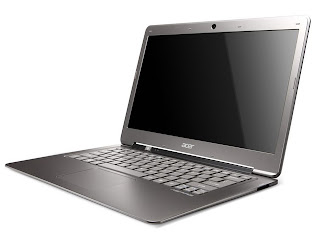
Security within a company goes way beyond the night watch guard in the parking lot. It also goes beyond one simple technology. It's a unique system that has to be appropriated piece by piece so that each branch of the company's security works in tandem with each other.
Computer security, albeit just one aspect of security as a whole, is arguably the biggest portion of company security and integrity. Think about it. All of the information within your company is stored on servers that employees access and have certain control over. That security can be taken advantage of through employees however. Whether an employee has malicious intent through his actions or not, it's still a concern that needs to be noted.
Firewalls, data encryption, controlled access, and more need to be added within a proper security network in order to maintain optimal online company security. Computer company Dell is now offering a network security suite program intended to cover all online security fronts. Many security companies on the market offer excellent security measures, but it's odd to see an actual computer company offering the same type of services.

This is just a taste of what the security protocols on the new Dell Endpoint Security Suite can do and, by the looks if it, you may want to take advantage of it. Apple has had its share of certain people trying to gain access to the security of their devices. The CIA has actually been attempting to decrypt Apple's processors and Xcode in order to create back doors to different applications and programs within the Apple operating systems.
Between people like the CIA trying to hack into Apple device security so that they may have "lawful electronic surveillance" become more possible and employees intentionally or unintentionally putting your company's information and data at risk, it's easy to see why your company's network security is so important. Your company's information is invaluable, so make sure you have all of your bases covered.
Sources located here, here and here.

 According to multiple reports and sources, suppliers of ultrabooks are facing a lot of issues with profitability and market. As a result, many manufacturers are expected to turn to low-cost designs to make up for it. According to an anonymous CNET source that speaks directly to ultrabook suppliers, "The ultrabook adoption during the holiday season was ugly." Before you go jumping to conclusions, this source was only talking about one ultrabook manufacturer specifically.
According to multiple reports and sources, suppliers of ultrabooks are facing a lot of issues with profitability and market. As a result, many manufacturers are expected to turn to low-cost designs to make up for it. According to an anonymous CNET source that speaks directly to ultrabook suppliers, "The ultrabook adoption during the holiday season was ugly." Before you go jumping to conclusions, this source was only talking about one ultrabook manufacturer specifically.
 Good news recently came out of Dell as the computer company reported that its net income for the last quarter nearly tripled as Dell benefited from lower computer component costs and growth in certain areas of its more profitable product lines.
Good news recently came out of Dell as the computer company reported that its net income for the last quarter nearly tripled as Dell benefited from lower computer component costs and growth in certain areas of its more profitable product lines. Bad news for the computer industry has just recently been released. Thanks to weak demand for consumer PCs, growth for worldwide PC shipments showed a 1.1% decline from the first quarter of 2010 according to a Gartner's PC Quarterly Statistics Worldwide by Region program. Weak demand for consumer PCs was the primary inhibitor. However, despite the weakening of sales around the globe, the Asia Pacific region showed encouraging growth as PC shipments surpassed 28.2 million in the first quarter of 2011. This is interesting due to the fact that, statistically speaking, sales of consumer PCs usually do not show this much popularity or growth in the beginning of the year. The first quarter of most years is stereotypically slow for PC sales. Gartner also noted, however, that these shipment results indicate potential sluggishness and not a typical seasonal slowdown. Gartner pointed out that these figures are well below earlier predictions for a 3% growth in the first quarter of 2011. In response to different markets in Asia, Gartner said that consumer PC sales were also slow both in China and also in Taiwan and that they failed to attract customers during the celebration of Chinese New Year. Consumers in India were occupied by the Cricket World Cup and preferred to upgrade their personal PCs or buy a new TV rather than home electronics. In addition to that, PC shipments in Japan hit a decline of 13.1% in 2011's first quarter. According to Principle Analyst for Gartner Mikako Kitagawa, "Weak demand for consumer PCs was the biggest inhibitor of growth. Low prices for consumer PCs, which had long stimulated growth, no longer attracted buyers. Instead, consumers turned their attention to media tablets and other consumer electronics. With the launch of the iPad 2 in February, more consumers either switched to buying an alternative device, or simply held back from buying PCs. We're investigating whether this trend is likely to have a long-term effect on the PC market." Computer company HP accounted for 17.6% of worldwide PC shipments in the first quarter of 2011. HP also maintained the number one spot. Acer saw declining shipments of 12.2% and Dell reported a shipment decline year-over-year for the first time in six quarters. Lenovo continued to price products competitively in the consumer market as well as the professional market and enjoyed the strongest growth among the top vendors as a result. Source:
Bad news for the computer industry has just recently been released. Thanks to weak demand for consumer PCs, growth for worldwide PC shipments showed a 1.1% decline from the first quarter of 2010 according to a Gartner's PC Quarterly Statistics Worldwide by Region program. Weak demand for consumer PCs was the primary inhibitor. However, despite the weakening of sales around the globe, the Asia Pacific region showed encouraging growth as PC shipments surpassed 28.2 million in the first quarter of 2011. This is interesting due to the fact that, statistically speaking, sales of consumer PCs usually do not show this much popularity or growth in the beginning of the year. The first quarter of most years is stereotypically slow for PC sales. Gartner also noted, however, that these shipment results indicate potential sluggishness and not a typical seasonal slowdown. Gartner pointed out that these figures are well below earlier predictions for a 3% growth in the first quarter of 2011. In response to different markets in Asia, Gartner said that consumer PC sales were also slow both in China and also in Taiwan and that they failed to attract customers during the celebration of Chinese New Year. Consumers in India were occupied by the Cricket World Cup and preferred to upgrade their personal PCs or buy a new TV rather than home electronics. In addition to that, PC shipments in Japan hit a decline of 13.1% in 2011's first quarter. According to Principle Analyst for Gartner Mikako Kitagawa, "Weak demand for consumer PCs was the biggest inhibitor of growth. Low prices for consumer PCs, which had long stimulated growth, no longer attracted buyers. Instead, consumers turned their attention to media tablets and other consumer electronics. With the launch of the iPad 2 in February, more consumers either switched to buying an alternative device, or simply held back from buying PCs. We're investigating whether this trend is likely to have a long-term effect on the PC market." Computer company HP accounted for 17.6% of worldwide PC shipments in the first quarter of 2011. HP also maintained the number one spot. Acer saw declining shipments of 12.2% and Dell reported a shipment decline year-over-year for the first time in six quarters. Lenovo continued to price products competitively in the consumer market as well as the professional market and enjoyed the strongest growth among the top vendors as a result. Source:  The tech world has been buzzing over Intel's second generation of processors known as "Sandy Bridge", but now they might be buzzing in a slightly different way as a major design flaw is stirring things up with not only Intel but other technology companies that have invested in devices using the processors.
The tech world has been buzzing over Intel's second generation of processors known as "Sandy Bridge", but now they might be buzzing in a slightly different way as a major design flaw is stirring things up with not only Intel but other technology companies that have invested in devices using the processors.